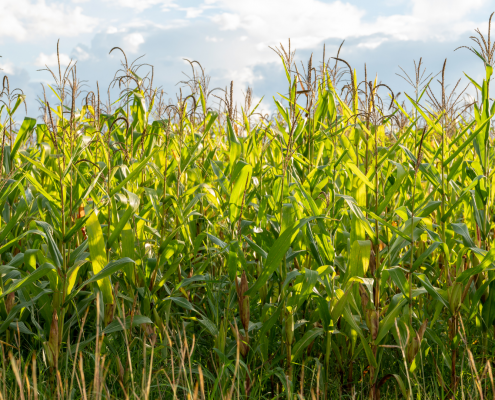Spotting tar spot disease sooner
by Emilie Lorditch, Michigan State University
Dispatching drones equipped with remote sensing technology in the air and taking smartphone images on the ground, a Michigan State University researcher is helping farmers more quickly predict and quantify tar spot, a disease found in maize crops.
The fungus that causes tar spot likes cool temperatures and wet leaves,” said Addie Thompson, assistant professor in the Department of Plant, Soil and Microbial Sciences within the College of Agriculture and Natural Resources. “It can spread quickly, causing up to a 50% decrease in crop yields,” said Thompson who was recently awarded a Bayer Grants4Ag $10,000 award to support her research.
Aspects of this work have also been supported by the USDA National Institute of Food and Agriculture’s Agriculture and Food Research Initiative to further screen and incorporate disease resistance into new varieties, MSU’s Plant Resilience Institute-Generating Research and Extension to meet Economic and Environmental Needs to initiate resistance screening and an MSU Strategic Partnership Grant on plant phenomics to acquire the hyperspectral drone unit and bring together experts across campus in plant and computational sciences.
> Source: PHYS.ORG



 Canva @ Udomsook /CC0 Public Domain
Canva @ Udomsook /CC0 Public Domain Credit: Canva @ marchmeena29 /CC0 Public Domain
Credit: Canva @ marchmeena29 /CC0 Public Domain